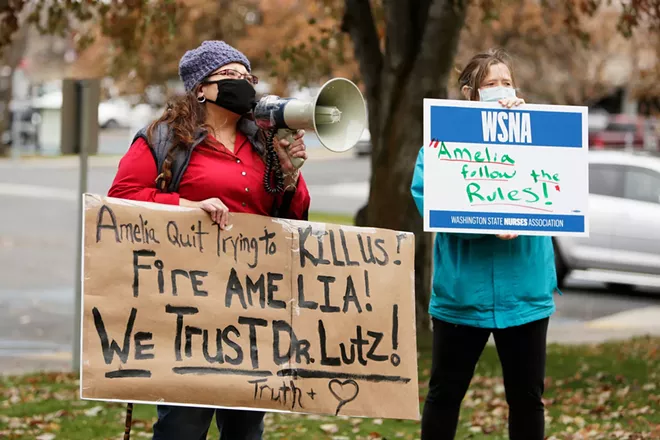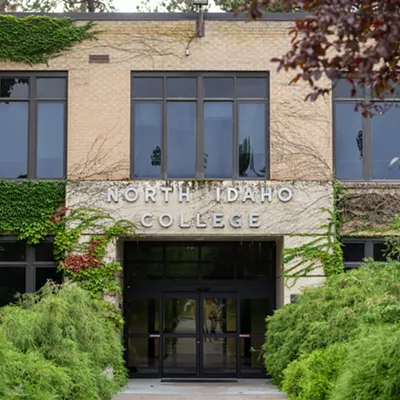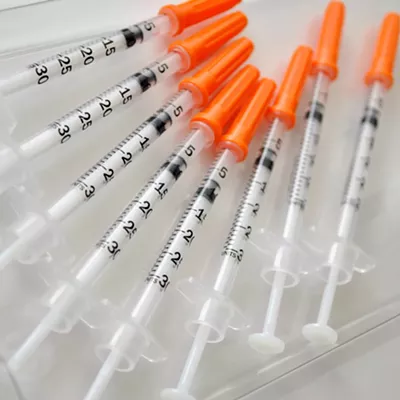
The nonprofit Mujeres in Action has launched a new bilingual hotline for sexual assault and domestic violence help called "Primera Conexión."
Callers to the 24/7 hotline, which started up Feb. 14 at 509-795-2028, will connect with a bilingual advocate who can communicate with them in Spanish and English as they access a confidential support system.
Mujeres in Action (MiA), which is operating the hotline, notes that one in three Latinx women and one in three Latinx men will experience physical and/or sexual violence in their lifetime, according to the 2010-2012 National Intimate Partner and Sexual Violence Survey.
"Yet, many members of the Spokane Latinx community feel as if they have no voice or options when it comes to leaving an abusive relationship," the nonprofit says in a news release. "This may be due to documentation status, language barriers, and/or lack of employment. Primera Conexión is the first step toward strengthening the Spokane Latinx community by offering crisis intervention, safety planning, information and/or resources to callers."
MiA has become a go-to resource for domestic and sexual violence survivors in the Latinx community in Spokane, according to the nonprofit's founder and Executive Director Hanncel Sanchez.
"We've been getting calls after office hours and over the weekend from community members searching for support for their loved ones in abusive relationships," Sanchez says in the release. "This helpline is a resource by the Latinx and for the Latinx people."
The helpline received a grant from the Smith-Barbieri Progressive Fund, which also enabled MiA to hire a staff member to recruit and train volunteers. With eight new volunteers trained under Washington law as victim advocates (both for sexual assault and domestic violence), plus several MiA staff members trained to answer the hotline, people will be able to reach someone whenever the need arises, says Ana Trusty, communications director for MiA.
The organization is able to offer a variety of resources and connections to other services, Trusty tells the Inlander. The team can connect people with mental health resources and Spanish-speaking therapists, assist with navigating the court system and filing protection orders, go along for hospital visits (typically for sexual assault), connect people with immigration legal assistance, and where needed, get people into safe housing situations.
"We have a couple of apartments that were just donated to MiA that we can use for 30 days at a time, per person," Trusty says. "So if they needed to leave their house right away, we could put them there until we find a more permanent solution."
FEDERAL CLEANUP PLAN FOR SPOKANE RIVER
The Environmental Protection Agency will create a legally required cleanup plan for the Spokane River called a total maximum daily load, after a federal judge ruled last week in favor of environmental groups who claimed back in 2011 that Washington state wasn't doing that work.The Sierra Club's Upper Columbia River chapter and the Seattle-based Center for Environmental Law and Policy — with the support of the Spokane Tribe of Indians — requested last year that a federal judge rule in their favor in the case that stretched on for a decade, partly because the groups waited to see if a regional task force would tackle the pollution.
Specifically the cleanup plan is meant to target cancer-causing PCBs (polychlorinated biphenyls), which are chemicals that accumulate in fish and animals and continue to plague the area despite no longer being intentionally manufactured.
The groups involved in the case argued that since Washington state's Department of Ecology had so far failed to produce a sufficient cleanup plan, the EPA should be required to create one instead.
Their request was granted Feb. 10, when U.S. District Judge Barbara Rothstein entered a "consent decree" settlement, which requires the EPA to complete the cleanup plan within three years.
The plan will set a numeric limit on how many PCBs can enter the river to remain in compliance with water quality standards. When that limit is reached, the five main polluters that discharge sources of PCBs into the river will be required to take further action to stay in compliance.
"We need to get cancer out of the Spokane River," said Tom Soeldner, who volunteers with the Spokane River Team of the Upper Columbia River Group, Sierra Club. "We waited 15 years for Washington's state government to do its job under the law before filing the lawsuit. After more than a decade in court, this win for the Spokane River means the cleanup plan finally will get done. Now EPA will be responsible for the Spokane River's PCB cleanup plan."
LUTZ LAWSUIT
Dr. Bob Lutz, through his attorneys, has filed a formal suit for wrongful termination against Spokane Regional Health District, months after he filed an administrative claim that spelled out his grievances.Similar to the October 2021 claim, the new complaint alleges that health district Administrative Officer Amelia Clark wrongfully fired Lutz on Oct. 29, 2020, without a public hearing before the local health board, as required by law. Clark is also being sued as an individual.
The lawsuit, filed in Spokane County Superior Court on Feb. 8, calls for Lutz to immediately be reinstated as health officer and asks for damages for lost wages and potential future wages, as well as other costs and damages.
The complaint lays out examples of political pressure and disagreements between Lutz, Clark and politicians on the health board over gun control/suicide prevention, mask mandates, business and school closures, and more. The lawsuit alleges those incidents ultimately led to Lutz being fired despite his personnel file not including documentation of several apparent issues leading up to his firing.
Lutz's attorney Robert J. Carlson sent the Inlander the following statement by email:
"The primary basis for Dr. Lutz's complaint is the Wrongful Termination of Dr. Lutz from his position as Health Officer of SRHD. The Claim for Wrongful Termination has numerous bases, including violations of statutory protections under Washington law, violations of internal SRHD bylaws, lack of just cause, and violations of public policy and State and Federal Constitutional protections. As included in the complaint, Dr. Lutz is seeking reinstatement to his position as Local Health Officer, damages resulting from the SRHD's and Ms. Clark's actions, and costs and attorney fees."
The question of whether Lutz was fired under proper procedure has remained the biggest sticking point in the case. Clark has insisted that she placed Lutz on administrative leave on Oct. 29 until he was ultimately fired by the health board on Nov. 5.
But the lawsuit mentions an email sent to the health board by their attorney Michelle Fossum on Oct. 29, 2020, informing board members that Lutz had been terminated. The email was first reported publicly by the Inlander in July 2021, but it was not mentioned in the October 2021 administrative claim that Lutz filed in advance of moving on to full-fledged litigation.
The health district has declined to comment on matters related to the potential (now actual) litigation since late 2020. ♦
























